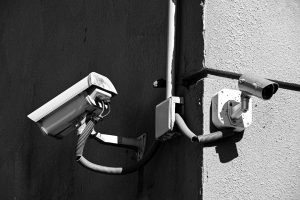Are Home Security Systems Worth It? Understanding Security System Benefits
In an era where safety concerns are on the rise,

Security system alarms are an essential component of any comprehensive security plan. These alarms are designed to detect and alert homeowners or business owners of potential threats, such as break-ins or fires. They provide an added layer of protection and peace of mind, ensuring that you are aware of any potential dangers and can take appropriate action.
Having a security system in place is crucial for several reasons. First and foremost, it helps deter criminals from targeting your property. Studies have shown that homes and businesses with visible security systems are less likely to be targeted by burglars. Additionally, security system alarms provide early warning signs of potential threats, allowing you to take immediate action and potentially prevent further damage or harm.
The internet plays a significant role in modern security systems. Internet-connected security systems, also known as smart security systems, utilize the internet to transmit data and communicate with the homeowner or business owner. These systems often include features such as remote monitoring, smartphone alerts, and the ability to control and access the system from anywhere with an internet connection.
The benefits of having internet-connected security systems are numerous. With remote monitoring, homeowners or business owners can keep an eye on their property even when they are not physically present. Smartphone alerts provide real-time notifications of any suspicious activity or potential threats, allowing for immediate action. The ability to control and access the system remotely adds convenience and flexibility to managing your security system.
Yes, security system alarms can work without internet connectivity. While internet-connected security systems offer additional features and convenience, traditional security systems that do not rely on the internet are still effective in providing protection.
Security systems without internet typically use a landline phone connection or cellular network to transmit signals to a monitoring center or directly to the homeowner or business owner. These systems may not have all the bells and whistles of internet-connected systems, but they still provide the essential function of detecting and alerting of potential threats.
There are several types of security systems that do not require internet connectivity. These include:
1. Landline-based security systems: These systems use a traditional landline phone connection to transmit signals to a monitoring center. They are reliable and have been used for many years. However, they may be vulnerable to tampering if the phone line is cut.
2. Cellular-based security systems: These systems use a cellular network to transmit signals to a monitoring center or directly to the homeowner or business owner. They are more secure than landline-based systems as they are not susceptible to phone line tampering. Cellular-based systems also offer the advantage of being able to operate even during power outages.
3. Standalone alarm systems: These systems are not connected to any external monitoring service but rely on loud alarms or sirens to alert the homeowner or business owner of potential threats. They are typically used in smaller properties or as a supplementary security measure.
There are several advantages to using security systems that do not require internet connectivity:
1. Reliability: Internet-connected security systems may be vulnerable to power outages or internet service disruptions. Security systems without internet, particularly cellular-based systems, offer a higher level of reliability as they can continue to operate even during these disruptions.
2. Lower cost: Security systems that do not require internet connectivity tend to be more affordable than their internet-connected counterparts. They often have lower upfront costs and may not require monthly subscription fees for monitoring services.
3. Ease of installation: Installing a security system without internet is often simpler and less complicated than setting up an internet-connected system. There is no need for complex network configurations or troubleshooting internet connectivity issues.
Examples of situations where internet-free security systems are ideal include remote locations with limited or unreliable internet access, properties without a landline phone connection, or individuals who prefer a more straightforward and cost-effective security solution.
While security systems without internet have their advantages, they also come with some limitations:
1. Limited features: Internet-connected security systems offer a wide range of features and capabilities, such as remote monitoring, smartphone alerts, and integration with other smart home devices. Security systems without internet may lack these advanced features.
2. Lack of remote access: Without internet connectivity, it may not be possible to remotely access or control the security system. This means that homeowners or business owners cannot monitor their property or make changes to the system settings when they are away.
3. Limited integration: Internet-connected security systems can be integrated with other smart home devices, such as cameras, door locks, and lighting systems. This allows for a more comprehensive and interconnected security solution. Security systems without internet may not have the same level of integration capabilities.
Installing a security system without internet is relatively straightforward. Here is a step-by-step guide on how to do it:
1. Choose the type of security system: Determine whether you want a landline-based system or a cellular-based system. Consider factors such as reliability, cost, and availability of phone lines or cellular coverage in your area.
2. Purchase the necessary equipment: Depending on the type of security system you choose, you will need to purchase the appropriate equipment, such as sensors, control panels, and alarm devices. Ensure that the equipment is compatible with your chosen system.
3. Plan the installation: Decide where you want to place the sensors and control panels to maximize coverage and effectiveness. Consider areas such as entry points, windows, and high-risk areas.
4. Install the sensors and control panels: Follow the manufacturer’s instructions to install the sensors and control panels. This may involve mounting them on walls or doors, connecting wires, and configuring settings.
5. Test the system: Once the installation is complete, test the system to ensure that all components are functioning correctly. Activate the alarm and check if the signals are being transmitted to the monitoring center or if you receive alerts as expected.
Tips for ensuring proper installation:
– Read the manufacturer’s instructions carefully and follow them step by step.
– Test each component individually before installing them permanently.
– Consider consulting a professional if you are unsure about any aspect of the installation process.
The cost of security systems that do not require internet connectivity can vary depending on several factors, including the type of system, the number of sensors and control panels needed, and any additional features or accessories.
Generally, security systems without internet tend to be more affordable than internet-connected systems. Landline-based systems may have lower upfront costs but may require a monthly subscription fee for monitoring services. Cellular-based systems may have higher upfront costs due to the need for cellular communication equipment but may not require ongoing subscription fees.
It is essential to consider both the upfront costs and any recurring expenses when evaluating the cost of a security system without internet. Additionally, factor in any additional features or accessories you may need, such as cameras or motion detectors, as these can add to the overall cost.
Proper maintenance is crucial to ensure that your security system without internet continues to function effectively. Here are some tips for maintaining your security system:
1. Regularly test the system: Test your security system at least once a month to ensure that all components are working correctly. Activate the alarm and check if signals are being transmitted as expected.
2. Keep sensors clean: Dust or debris can interfere with sensor performance. Regularly clean sensors using a soft cloth or brush to remove any buildup.
3. Replace batteries: If your security system uses battery-powered sensors or control panels, regularly check and replace the batteries as needed. Low batteries can affect the performance of the system.
4. Update firmware or software: If your security system has firmware or software updates available, make sure to install them promptly. These updates often include bug fixes and security enhancements.
5. Maintain communication equipment: If you have a landline-based system, ensure that the phone line is in good condition and not damaged. For cellular-based systems, check for any issues with the cellular communication equipment.
When it comes to choosing a security system, it is essential to consider your specific needs and situation. Both internet-connected security systems and security systems without internet have their advantages and disadvantages.
If you prioritize advanced features, remote access, and integration with other smart home devices, an internet-connected security system may be the right choice for you. However, if you are looking for a more straightforward and cost-effective solution that does not rely on internet connectivity, a security system without internet may be a better fit.
Consider factors such as reliability, cost, available infrastructure (such as phone lines or cellular coverage), and your desired level of convenience and functionality when making your decision. It is also advisable to consult with security professionals or reputable vendors to ensure that you choose the right security system for your specific needs.
If you’re wondering whether a security system alarm can work without an internet connection, you might find the article “Building Peace of Mind: A Comprehensive Guide to DIY Home Security Systems” from Home Security Superstore to be a valuable resource. This comprehensive guide explores various aspects of DIY Home Security Systems, including their functionality and features. It provides insights into how these systems can operate independently of the internet, ensuring your home remains protected even during internet outages or disruptions. To learn more about DIY home security systems and their capabilities, check out the article here.
In an era where safety concerns are on the rise,

In today’s world, security systems play a crucial role in

Home security systems are essential for protecting your home and